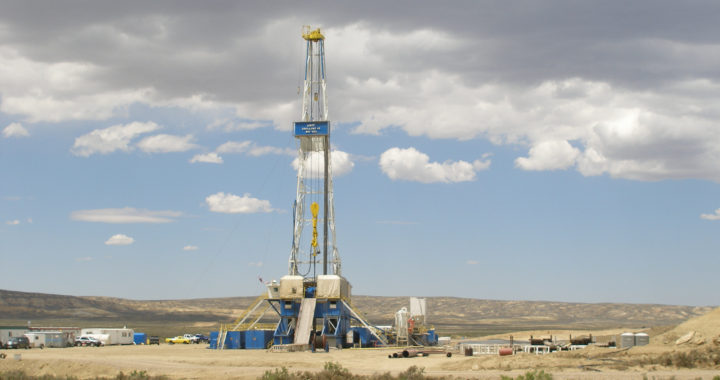If recent rumors are to be believed, a years-long campaign to establish fracking in the United Kingdom will soon come to a grinding halt. Minor tremors at a long-embattled Lancashire drilling site may have put the final nail in the UK fracking coffin. Relentless protests and unceasing anti-fracking sentiment in the nation’s media have turned the tide of public opinion against fracking in the United Kingdom.
Continue readingTag Archives: fracking
What Is Gel Fracking?
In Binghamton, a group of irate anti-fracking protestors has voiced concern over gel fracking, an alternative to hydro-fracking that experts call a greener approach to energy extraction.
What Is Gel Fracking?
In traditional hydraulic fracturing (commonly shortened to “fracking” to make it sound nastier), a jet of water is shot down a well under extreme pressure. The highly-pressurized water slams into rock deep in the Earth, breaking it up and releasing oil and gas.
Invented in 2008 by a company called GasFrac, gel fracking works in much the same way as traditional fracking, but with one big difference. In gel fracking, propane gel replaces water.
Utilizing a combination of propane gel (which already occurs naturally in the Earth) along with other non-toxic chemicals in place of water, gel fracking produces the same result as the alternative, just without the use of fresh water required in typical fracking.
Shortly after gel fracking began trials, one consultant explained, “The main advantage of the gelled propane is that once the gel is broken the propane flashes and mixes with the gas. Since the propane becomes part of the reservoir flow, the generated fracture is completely cleaned up … In addition, a water-based fracture has an efficiency of around 20 percent, while propane has 100 percent efficiency.”
The applications of this method have exciting implications for the future of oil and gas extraction.
The Situation in New York
Unfortunately, a group of anti-energy protestors in New York doesn’t see it that way. The state has maintained a very public ban on fracking since 2017; the legislation, however, doesn’t strictly prohibit gel fracking. As a result, a group of local landowners in Tioga County want to put the green fracking alternative into action.
In their submission to the state, the newly formed Tioga Energy Partners explained, “Waterless hydraulic fracturing was first performed in Canada in 2008 and since then has been used to successfully treat more than 2,600 zones at over 800 sites in North America.”
That record of excellence isn’t good enough, however, for a band of protestors opposed to the project. The anti-energy advocates argue that the state should implement a moratorium on gel fracking until a lengthy environmental study can be conducted.
The Future of Fracking
Perhaps the biggest mistake gel fracking ever made was simply relating itself to “fracking” at all. Although oil and gas continuously innovate fracking to make it more environmentally friendly, the term itself has become venomous.
Does it matter that gel fracking uses no water at all, or that it works at an astonishing 100 percent efficiency? Does it matter that gel fracking has operated without major incident for 11 years? It doesn’t seem to.
Fracking Actually Had Nothing to Do With the Firing of Ken Harris in California
In mid-July, California governor Gavin Newsom surprised the state when he summarily fired the state’s highest-ranked oil and gas regulator, Ken Harris. Statewide outlets were quick to connect Harris’ firing with an increase in the number of fracking permits handed out to energy in recent months.
Continue readingAmerican Oil & Gas Companies Build Relations with International Governments
This week, American oil and gas businesses stepped into the role of ambassadors representing their nation’s best interests abroad with deals in both Mexico and Saudi Arabia. Agreements struck with both international governments also demonstrate American dedication to bolstering economies outside of the United States, while providing jobs for hard-working oil and gas experts around the world. Continue reading




